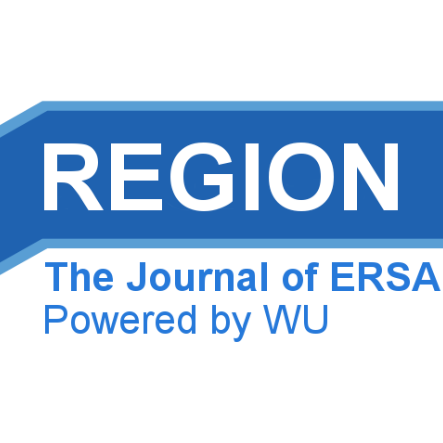The fiscal capacity of local government versus government expenditure, and its impact on eliminating interregional social inequalities in Poland
DOI:
https://doi.org/10.18335/region.v9i1.368Abstract
Social inequalities are a significant challenge in developing countries. Therefore, they should be treated as a leading priority in boosting socio-economic development. Such inequalities are a growing challenge for Poland. It is believed that social inequalities are behind Poland's relatively low position against other European countries in the Human Development Index ranking. Many factors influence social inequalities, one being the system of financing local government units. A critical area for considering social inequalities in the context of financial phenomena is the study of fiscal inequalities resulting from the implemented vertical division of public revenues among individual levels of public authority. The paper presents the results of research on the relationship between the fiscal capacity of local government units in Poland across voivodeships and the expenditure of government institutions, as well as the relationship of these expenses with social inequalities in voivodeships. To this end, six areas of social life were distinguished, for which the degree of inequality of transferred expenditure was determined using the Gini index. The method of the total order of objects was used to assess the impact of government institutions' expenditure on an individual's social situation across voivodeships. The conducted research showed both the weak dependence of government expenditure on individual units' fiscal capacity and its low effectiveness in eliminating inter-voivodeship social inequalities.

Downloads
Published
How to Cite
Issue
Section
License
Copyright (c) 2022 Małgorzata Gałecka, Leszek Patrzałek, Ireneusz Kuropka, Ewa Szabela-Pasierbińska

This work is licensed under a Creative Commons Attribution-NonCommercial 4.0 International License.
REGION is an open journal, and uses the standard Creative Commons license: Copyright We want authors to retain the maximum control over their work consistent with the first goal. For this reason, authors who publish in REGION will release their articles under the Creative Commons Attribution license. This license allows anyone to copy and distribute the article provided that appropriate attribution is given to REGION and the authors. For details of the rights authors grant users of their work, see the "human-readable summary" of the license, with a link to the full license. (Note that "you" refers to a user, not an author, in the summary.) Upon submission, the authors agree that the following three items are true: 1) The manuscript named above: a) represents valid work and neither it nor any other that I have written with substantially similar content has been published before in any form except as a preprint, b) is not concurrently submitted to another publication, and c) does not infringe anyone’s copyright. The Author(s) holds ERSA, WU, REGION, and the Editors of REGION harmless against all copyright claims. d) I have, or a coauthor has, had sufficient access to the data to verify the manuscript’s scientific integrity. 2) If asked, I will provide or fully cooperate in providing the data on which the manuscript is based so the editors or their assignees can examine it (where possible) 3) For papers with more than one author, I as the submitter have the permission of the coauthors to submit this work, and all authors agree that the corresponding author will be the main correspondent with the editorial office, and review the edited manuscript and proof. If there is only one author, I will be the corresponding author and agree to handle these responsibilities.




